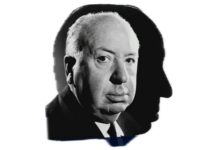Penny Weaver says she is staying calm and taking a wait-and-see approach to Proposition 2.
The measure on the Nov. 4 ballot would require California to put money into a “rainy day fund” when times are good and tax revenues are plentiful. It’s a constitutional amendment intended to avoid deep cuts when the economy slows.
But that’s not the part that worries the Scotts Valley Unified School District superintendent.
The measure would enact a separate law that caps the amount school districts keep in reserve. If certain triggers were met, the state would send extra money to school districts, with the stipulation that they couldn’t let it pile up; they would need to spend it so that reserves amounted to a maximum of 10 percent of their budget, and possibly as little as 3 percent.
A reserve of 3 percent would not be enough for a small district like Scotts Valley, Weaver said.
“Three-quarters of our facilities are aging,” she said. “Brook Knoll and Vine Hill (elementary schools) were built in the 1950s and ‘60s. Their sewer systems break down. We had a repair at Scotts Valley High that cost $90,000 that wasn’t covered by insurance. With a 3 percent reserve, one repair like that would put us in a negative budget scenario.”
Weaver said the district has held reserves of as much as 24 percent of its budget to be prepared for such an expense.
“If we had to spend down our reserves to 3 percent, we’d spend some on new facilities, and unions would want to bargain for some,” she said. “Those are good expenses, but how would we be able to pay for a new sewer line?”
The cap on school district reserves was inserted into Proposition 2 by Democratic legislators at the urging of teachers unions, who believe it would make more money available for teachers’ salaries, according to the San Jose Mercury News.
Krista Patterson, who teaches third grade at Brook Knoll, is secretary of the local teachers’ union, the Scotts Valley Education Association. She is also involved with teachers unions on the state and national level.
“Our district has been reasonable,” Patterson said, “but some districts are not. Some sit on 50 percent of their budget as reserves. That money should be spent on students, not waiting for some disaster to happen.”
She said Scotts Valley may need a bigger reserve than 3 percent but added that the cap provided by Proposition 2 could be raised later. The Modesto Bee said the state legislature could change the law without a vote of the people.
Weaver said the proposition’s formula for spending district reserves could benefit employees, but she added a caveat.
“We have no way of knowing if a windfall of tax revenue will be ongoing,” she said, so the district would not want to lock itself in to ongoing raises. One-time bonuses would be more likely, she said.
That’s not to suggest that Weaver opposes better pay for teachers and other employees. Employees made sacrifices during the financial crisis “to keep the district solvent,” she said.
“Our maintenance staff is 50 percent of what it should be,” she said. “Our employees took no raises for six years and worked with furlough days. Their living expenses increased, but their incomes didn’t. This may have led to more teachers retiring than usual.”
“We have a very talented group of people,” Weaver said. “They could be making more money over the hill, but they choose to stay here.”
Weaver said if Proposition 2 passes, it would not have an immediate effect.
“It would take a number of years before we would have a cap,” she said. “We’ll get a better idea if it passes.”
– Mark Rosenberg is a financial adviser with Financial West Group in Scotts Valley, a member of FINRA and SIPC. He can be reached at 831-439-9910 or mr********@*wg.com.











